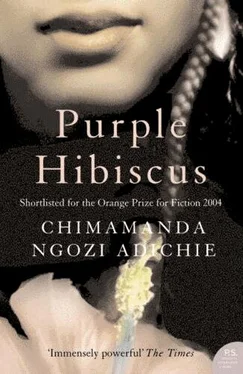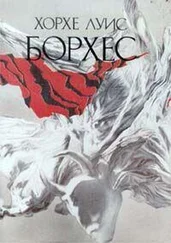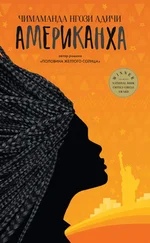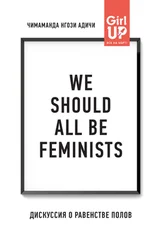Чимаманда Адичи - Purple hibiscus
Здесь есть возможность читать онлайн «Чимаманда Адичи - Purple hibiscus» — ознакомительный отрывок электронной книги совершенно бесплатно, а после прочтения отрывка купить полную версию. В некоторых случаях можно слушать аудио, скачать через торрент в формате fb2 и присутствует краткое содержание. Год выпуска: 2003, ISBN: 2003, Издательство: Algonquin Books of Chapel Hill, Жанр: Современная проза, на английском языке. Описание произведения, (предисловие) а так же отзывы посетителей доступны на портале библиотеки ЛибКат.
- Название:Purple hibiscus
- Автор:
- Издательство:Algonquin Books of Chapel Hill
- Жанр:
- Год:2003
- ISBN:1-56512-387-5
- Рейтинг книги:5 / 5. Голосов: 1
-
Избранное:Добавить в избранное
- Отзывы:
-
Ваша оценка:
- 100
- 1
- 2
- 3
- 4
- 5
Purple hibiscus: краткое содержание, описание и аннотация
Предлагаем к чтению аннотацию, описание, краткое содержание или предисловие (зависит от того, что написал сам автор книги «Purple hibiscus»). Если вы не нашли необходимую информацию о книге — напишите в комментариях, мы постараемся отыскать её.
Purple hibiscus — читать онлайн ознакомительный отрывок
Ниже представлен текст книги, разбитый по страницам. Система сохранения места последней прочитанной страницы, позволяет с удобством читать онлайн бесплатно книгу «Purple hibiscus», без необходимости каждый раз заново искать на чём Вы остановились. Поставьте закладку, и сможете в любой момент перейти на страницу, на которой закончили чтение.
Интервал:
Закладка:
Those were the words I said to myself as I took my exams the following week. And I repeated them, too, as Kevin drove me home on the last day of school, my report card tightly pressed to my chest. The Reverend Sisters gave us our cards unsealed. I came second in my class. It was written in figures: "2/25." My form mistress, Sister Clara, had written, "Kambili is intelligent beyond her years, quiet and responsible." The principal, Mother Lucy, wrote, "A brilliant, obedient student and a daughter to be proud of."
But I knew Papa would not be proud. He had often told Jaja and me that he did not spend so much money on Daughters of the Immaculate Heart and St. Nicholas to have us let other children come first. Nobody had spent money on his own schooling, especially not his Godless father, our Papa-Nnukwu, yet he had always come first. I wanted to make Papa proud, to do as well as he had done. I needed him to touch the back of my neck and tell me that I was fulfilling God's purpose. I needed him to hug me close and say that to whom much is given, much is also expected. I needed him to smile at me, in that way that lit up his face, that warmed something inside me. But I had come second. I was stained by failure.
Mama opened the door even before Kevin stopped the car in the driveway. She always waited by the front door on the last day of school, to sing praise songs in Igbo and hug Jaja and me and caress our report cards in her hands. It was the only time she sang aloud at home. "O me mma, Chineke, o me mma…"
Mama started her song and then stopped when I greeted her. "Good afternoon, Mama."
"Nne, did it go well? Your face is not bright." She stood aside to let me pass.
"I came second."
Mama paused. "Come and eat. Sisi cooked coconut rice."
I was sitting at my study desk when Papa came home. He lumbered upstairs, each heavy step creating turbulence in my head, and went into Jaja's room. He had come first, as usual, so Papa would be proud, would hug Jaja, leave his arm resting around Jaja's shoulders. He took a while in Jaja's room, though; I knew he was looking through each individual subject score, checking to see if any had decreased by one or two marks since last term. Something pushed fluids into my bladder, and I rushed to the toilet. Papa was in my room when I came out. "Good evening, Papa, nno."
"Did school go well?"
I wanted to say I came second so that he would know immediately, so that I would acknowledge my failure, but instead I said, "Yes," and handed him the report card. He seemed to take forever to open it and even longer to read it. I tried to pace my breathing as I waited, knowing all the while that I could not.
"Who came first?" Papa asked, finally.
"Chinwe Jideze."
"Jideze? The girl who came second last term?"
"Yes," I said. My stomach was making sounds, hollow rumbling sounds that seemed too loud, that would not stop even when I sucked in my belly.
Papa looked at my report card for a while longer; then he said, "Come down for dinner."
I walked downstairs, my legs feeling joint-free, like long strips of wood. Papa had come home with samples of a new biscuit, and he passed the green packet around before we started dinner. I bit into the biscuit. "Very good, Papa."
Papa took a bite and chewed, then looked at Jaja.
"It has a fresh taste," Jaja said.
"Very tasty," Mama said.
"It should sell by God's grace," Papa said. "Our wafers lead the market now and this should join them."
I did not, could not, look at Papa's face when he spoke. The boiled yam and peppery greens refused to go down my throat; they clung to my mouth like children clinging to their mothers' hand at a nursery school entrance. I downed glass after glass of water to push them down, and by the time Papa started the grace, my stomach was swollen with water. When he was done, Papa said, "Kambili, come upstairs."
I followed him. As he climbed the stairs in his red silk pajamas, his buttocks quivered and shook like akamu, properly made akamu, jellylike. The cream decor in Papa's bedroom was changed every year but always to a slightly different shade of cream. The plush rug that sank in when you stepped on it was plain cream; the curtains had only a little brown embroidery at the edges; the cream leather armchairs were placed close together as if two people were sitting in an intimate conversation. All that cream blended and made the room seem wider, as if it never ended, as if you could not run even if you wanted to, because there was nowhere to run to. When I had thought of heaven as a child, I visualized Papa's room, the softness, the creaminess, the endlessness. I would snuggle into Papa's arms when harmattan thunderstorms raged outside, flinging mangoes against the window netting and making the electric wires hit each other and spark bright orange flames. Papa would lodge me between his knees or wrap me in the cream blanket that smelled of safety.
I sat on a similar blanket now, on the edge of the bed. I slipped off my slippers and sank my feet into the rug and decided to keep them sunk in so that my toes would feel cushioned. So that a part of me would feel safe.
"Kambili," Papa said, breathing deeply. "You didn't put in your best this term. You came second because you chose to." His eyes were sad. Deep and sad.
I wanted to touch his face, to run my hand over his rubbery cheeks. There were stories in his eyes that I would never know.
The phone rang then; it had been ringing more often since Ade Coker was arrested. Papa answered it and spoke in low tones. I sat waiting for him until he looked up and waved me away.
He did not call me the next day, or the day after, to talk about my report card, to decide how I would be punished. I wondered if he was too preoccupied with Ade Coker's case, but even after he got him out of jail a week later, he did not talk about my report card. He did not talk about getting Ade Coker out of jail, either; we simply saw his editorial back in the Standard, where he wrote about the value of freedom, about how his pen would not, could not, stop writing the truth. But he did not mention where he had been detained or who had arrested him or what had been done to him. There was a postscript in italics where he thanked his publisher: "a man of integrity, the bravest man I know."
I was sitting next to Mama on the couch, during family time, and I read that line over and over and then closed my eyes, felt a surge run through me, the same feeling I got when Father Benedict talked about Papa at Mass, the same feeling I got after I sneezed: a clear, tingling sensation.
"Thank God Ade is safe," Mama said, running her hands over the newspaper.
"They put out cigarettes on his back," Papa said, shaking his head. "They put out so many cigarettes on his back."
"They will receive their due, but not on this earth, mba," Mama said. Although Papa did not smile at her-he looked too sad to smile-I wished I had thought to say that, before Mama did. I knew Papa liked her having said that.
"We are going to publish underground now," Papa said. "It is no longer safe for my staff."
I knew that publishing underground meant that the newspaper would be published from a secret location. Yet I imagined Ade Coker and the rest of the staff in an office beneath the ground, a fluorescent lamp flooding the dark damp room, the men bent over their desks, writing the truth.
That night, when Papa prayed, he added longer passages urging God to bring about the downfall of the Godless men ruling our country, and he intoned over and over, "Our Lady Shield of the Nigerian People, pray for us."
The school break was short, only two weeks, and the Saturday before school resumed, Mama took Jaja and me to the market to get new sandals and bags. We didn't need them; our bags and brown leather sandals were still new, only a term old. But it was the only ritual that was ours alone, going to the market before the start of each new term, rolling the car window down as Kevin drove us there without having to ask permission from Papa. In the outskirts of the market, we let our eyes dwell on the half-naked mad people near the rubbish dumps, on the men who casually stopped to unzip their trousers and urinate at corners, on the women who seemed to be haggling loudly with mounds of green vegetables until the head of the trader peeked out from behind. Inside the market, we shrugged off traders who pulled us along the dark passages, saying, "I have what you want," or "Come with me, it's here," even though they had no idea what we wanted. We scrunched up our noses at the smells of bloody fresh meat and musty dried fish, and lowered our heads from the bees that buzzed in thick clouds over the sheds of the honey sellers. As we left the markets with our sandals and some fabric Mama had bought, we saw a small crowd gathered around the vegetable stalls we had passed earlier, the ones lining the road. Soldiers were milling around. Market women were shouting, and many had both hands placed on their heads, in the way that people do to show despair or shock. A woman lay in the dirt, wailing, tearing at her short afro. Her wrapper had come undone and her white underwear showed.
Читать дальшеИнтервал:
Закладка:
Похожие книги на «Purple hibiscus»
Представляем Вашему вниманию похожие книги на «Purple hibiscus» списком для выбора. Мы отобрали схожую по названию и смыслу литературу в надежде предоставить читателям больше вариантов отыскать новые, интересные, ещё непрочитанные произведения.
Обсуждение, отзывы о книге «Purple hibiscus» и просто собственные мнения читателей. Оставьте ваши комментарии, напишите, что Вы думаете о произведении, его смысле или главных героях. Укажите что конкретно понравилось, а что нет, и почему Вы так считаете.






![О Генри - Пурпурное платье [The Purple Dress]](/books/405339/o-genri-purpurnoe-plate-the-purple-dress-thumb.webp)





